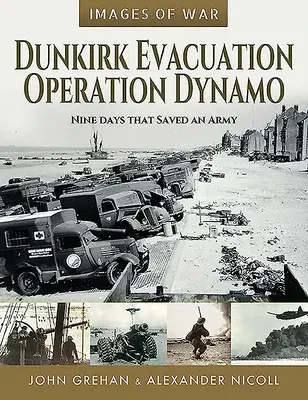Photographs of the Royal Navy destroyers and the requisitioned
merchant and civilian vessels and of the sturdy lifeboats of the
RNLI.
The 'miracle' of Dunkirk is one of the most inspiring stories of all
time. The British Expeditionary Force had been all but surrounded, and,
with the French armies collapsing on all sides, it appeared that Britain
was about to suffer the heaviest defeat in its history.
When Winston Churchill's War Cabinet finally accepted that the Battle of
France had been lost, preparations were made to try and rescue as many
soldiers as possible from one of the few ports left open to the British
Expeditionary Force - Dunkirk.
So rushed and chaotic was the retreat to the Channel coast, with
thousands of guns, vehicles and tanks being abandoned, there was little
time for soldiers to consider taking photographs of the shocking scenes
of death and destruction which surrounded them. Yet images do exist of
the ships and boats of all descriptions which braved the bombs and guns
of the German Air Force to rescue Britain's only field army from the
clutches of Hitler's panzer divisions.
One man in particular, Sub-Lieutenant John Rutherford Crosby, a member
of the crew of the minesweeper, and converted Clyde paddle steamer, HMS
Oriole, left a legacy of dramatic images. These include the
never-to-be-forgotten scenes of long lines of tired and anxious troops
stretching into the sea and of bombs exploding on the packed beaches -
all with his own personal little camera.
Other images in this book paint a vivid and memorable picture, as no
words ever could, of the greatest evacuation of troops under fire.

